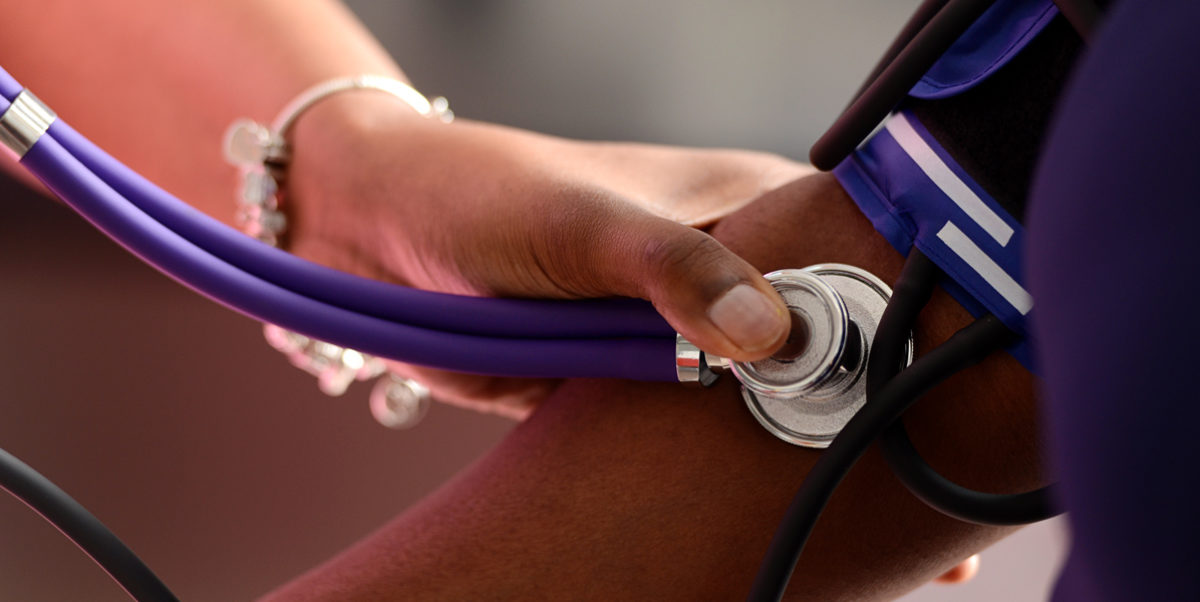Medical Assistant

Certificate Program
Division of Allied Health and Professions | Medical Assistant

Medical Assistant is an allied health profession that allows you to perform both back office clinical procedures and front office administrative responsibilities. Medical Assistants primarily find employment in outpatient or ambulatory healthcare facilities such as medical offices and clinics.
Clinical duties may include, but are not limited to:
- Medical Histories & Vital Signs
- Assist providers with various exams and minor office surgery procedures
- Instructing patients about medications and special diets
- Collecting/preparing lab specimens; Perform basic lab testing and phlebotomy
- Electrocardiograms
- Pulmonary Function Studies
- Infection Control
Administrative responsibilities may include, but are not limited to:
- Coding and filling out insurance forms
- Customer/Patient Service
- Updating and filing patient medical records
- Understanding patient privacy/compliance
- Scheduling appointments
- Arranging for hospital admissions and laboratory services
- Handling correspondences, billing and basic practice finances.
Medical Assistant students partake in a clinical practicum seminar which allows for hands-on experience in a real-world work environment. These externship hours help students gain confidence with the practical skills needed to succeed after graduation as well as provide an opportunity for professional networking. Upon successful completion of our program, students will be eligible to take up to six (6) certification exams: Certified Phlebotomy Technician (CPT), Certified Clinical Medical Assistant (CCMA), Certified Medical Administrative Assistant (CMAA), Certified Medical Reimbursement Specialist (CMRS), Certified Billing and Coding Specialist (CBCS) and Registered Medical Assistant (RMA). Medical Assistant Certificate graduates are ideal candidates Associate’s degree programs in fields like Nursing and Surgical Technology.
Program Director: Leah Gilmer, CST, BS
Email: Gilmerl@trocaire.edu
Program Format
Time of Program: Day
Mode of Delivery: (On-site/seated and Online)
Normal Time to Completion: 10 months
AAS Associate Program
Division of Allied Health and Professions | Medical Assistant

Medical Assistant is an allied health profession that allows you to perform both back office clinical procedures and front office administrative responsibilities. Medical Assistants primarily find employment in outpatient or ambulatory healthcare facilities such as medical offices and clinics.
Clinical duties may include, but are not limited to:
- Medical Histories & Vital Signs
- Assist providers with various exams and minor office surgery procedures
- Instructing patients about medications and special diets
- Collecting/preparing lab specimens; Perform basic lab testing and phlebotomy
- Electrocardiograms
- Pulmonary Function Studies
- Infection Control
Administrative responsibilities may include, but are not limited to:
- Coding and filling out insurance forms
- Customer/Patient Service
- Updating and filing patient medical records
- Understanding patient privacy/compliance
- Scheduling appointments
- Arranging for hospital admissions and laboratory services
- Handling correspondences, billing and basic practice finances.
Medical Assistant students partake in a clinical practicum seminar which allows for hands-on experience in a real-world work environment. These externship hours help students gain confidence with the practical skills needed to succeed after graduation as well as provide an opportunity for professional networking. Upon successful completion of our program, students will be eligible to take up to six (6) certification exams: Certified Phlebotomy Technician (CPT), Certified Clinical Medical Assistant (CCMA), Certified Medical Administrative Assistant (CMAA), Certified Medical Reimbursement Specialist (CMRS), Certified Billing and Coding Specialist (CBCS) and Registered Medical Assistant (RMA). Medical Assisting graduates are ideal candidates for bachelor’s degree programs in fields like Healthcare Management and Healthcare Informatics.
AAS: Medical Assisting
Program Director: Leah Gilmer, CST, BS
Email: Gilmerl@trocaire.edu
Program Format
Time of Program: Day
Mode of Delivery: On-site seated
Normal Time to Completion: 24 months

